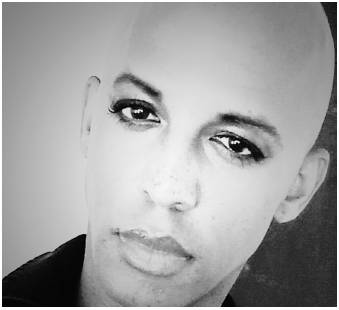What seems clear is that Millennials don’t fit into the current political, economic, or social systems in the same way that generations before them have, and it can be frustrating for those in leadership positions trying to shepherd and direct them in the usual ways. The Millennials may never be “good little workers,” they may not always believe without question what people in authoritative positions say, and they might not think that seniority equates to good leadership. This doesn’t mean that they don’t desire and respond to leadership. The Millennials are smart, connected co-creators, and the leadership style that is successful in shaping them will not fight against these traits, but build upon them.
“The same things that seem to have motivated previous generations do not motivate the Millennials…they want purpose over a paycheck.”
CONSTRUCTIVE LEADERSHIP
Millennials are not waiting on people in leadership positions to construct their reality of who they are for them; they generally have already got that covered. Millennials believe in themselves, they believe they will be able to accomplish their goals, and they believe they are capable of accomplishing the specific tasks before them. This may come across as entitlement to some who see things through a different lens, but taking time and energy to deconstruct their belief system can make Millennials apathetic and angry, neither of which are traits that make for quality employees.
Leadership that seeks to engage with Millennials will acknowledge them as individuals, acknowledge their desire to contribute (even when it seems misguided), and will acknowledge and even praise them when their contributions are effective. Instead of working to command subordinates, manage workers, or instruct followers, effective leaders of the Millennial generation will seek to create more conscious leaders who will actively seek new ways to accomplish old tasks and who will have the confidence to handle the ever-changing environment of business.
SUSTAINABLE LEADERSHIP
When I attended the United States Air Force Academy in 1998, there was a big push to change the way the cadre of trainers interacted with underclassmen. Gone were the days of hazing underclassmen and withholding food from them while trying to demand more out of them physically. The Air Force realized that to get the most out its future leaders, it needed to set them up for success – to do otherwise was unsustainable. The same is true for the Millennials; if you help them discover their talents, they will stick around and continue to learn from you.
The best leaders of Millennials will help them learn to sustain their success and to perform consistently at a high level. Let little weaknesses fall by the wayside and, instead, focus on the strengths of your Millennials. Require your Millennials to complete multiple strength assessment tests and unpack their strengths with them. This will serve multiple purposes:
1) It will create opportunities to spend time telling them what their strengths are, creating greater engagement;
2) It will reveal multiple ways to leverage their strengths and talents for your organization; and
3) It will give them a sense of significance regarding how they can contribute to the mission.
Strength assessments will also give you multiple tools to address what certainly is around the corner – if they have not already reared their ugly heads – and that is their flaws. A Millennial’s flaws, or severe deficiencies in mission-critical elements of the job, often reveal themselves during sustained periods of success when a Millennial has earned or been given new responsibilities. These flaws may be the result of a lack of training or could also be interpersonal and relational issues. Addressing flaws will create trust and build a sense of loyalty to you as you teach them to be unstoppable in their pursuit of excellence.
“The Millennials are smart, connected co-creators, and the leadership style that is successful in shaping them will not fight against these traits, but build upon them.”
GENERATIVE LEADERSHIP
It is possible for strengths and flaws to exist within the same person, at the same time. While strengths can be used as a tool to offset and address flaws, it is unlikely that focusing on strengths will be a sufficient remedy. Some criticize the Millennials for lacking fortitude and say they crumble at hardships, but flaws are present in each of us, at every level of success, and in every generation. I will propose that Millennials are able to bounce back from hardships faster and with less damage because of their willingness to cooperate and collaborate with one another.
Leaders of Millennials will create a sense of community inside of their organizations and the community will help carry the load as Millennials’ flaws are engaged and strengths are further developed. Effective leadership of Millennials moves away from an “us versus them” or “me and I” mentality and fosters a sense of “we” and of “oneness.” Effective leadership plays to Millennials’ feelings of interconnectedness and models the collaborative behaviors necessary to innovate new ideas.
When everything is said and done, the same things that seem to have motivated previous generations do not motivate the Millennials. They want to gain experiences through their jobs, not to be chained to them, and they want purpose over a paycheck. They already see the world as interconnected, and they see themselves as major players in this world. We need them to be. We need them to innovate and collaborate, and we need them to feel like they are powerful in effecting change.
We are moving into a conscious age of business and the Millennials and the generation coming after them will play a significant role in ushering us into this age. It’s time for those of us in other generations to either lead, follow, or get out of their way.
 Justice Calo Reign (BS, Behavioral Science – Leadership and Counseling, USAFA) has coached, trained, and instructed elite collegiate student-athletes at the Air Force Academy and University of Louisville. He is certified in NeuroPositive Coaching through the Applied Neuroscience Institute and continues to coach entrepreneurs, executives, world-class athletes, and entertainers to reach their highest potential. He is currently building a startup focusing on creating a generative entertainment industry. His blogs and podcasts can be found at www.sustyentertainment.com.
Justice Calo Reign (BS, Behavioral Science – Leadership and Counseling, USAFA) has coached, trained, and instructed elite collegiate student-athletes at the Air Force Academy and University of Louisville. He is certified in NeuroPositive Coaching through the Applied Neuroscience Institute and continues to coach entrepreneurs, executives, world-class athletes, and entertainers to reach their highest potential. He is currently building a startup focusing on creating a generative entertainment industry. His blogs and podcasts can be found at www.sustyentertainment.com.





